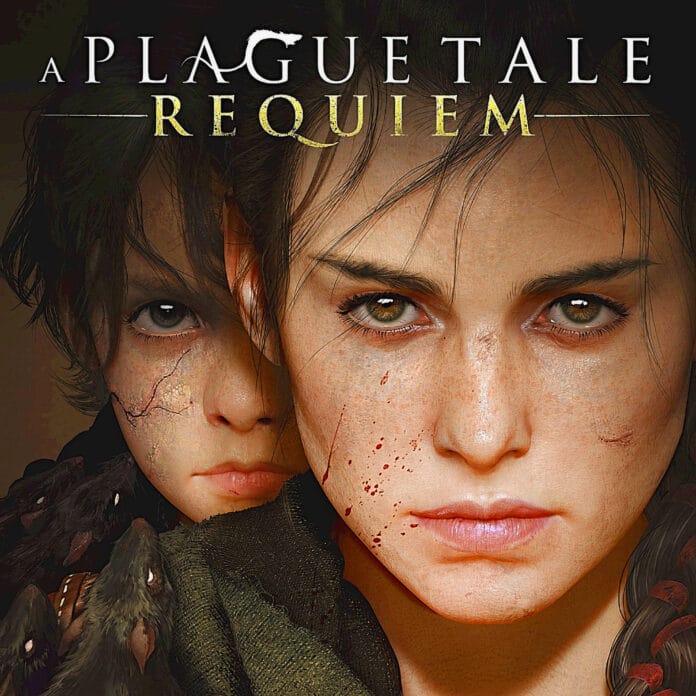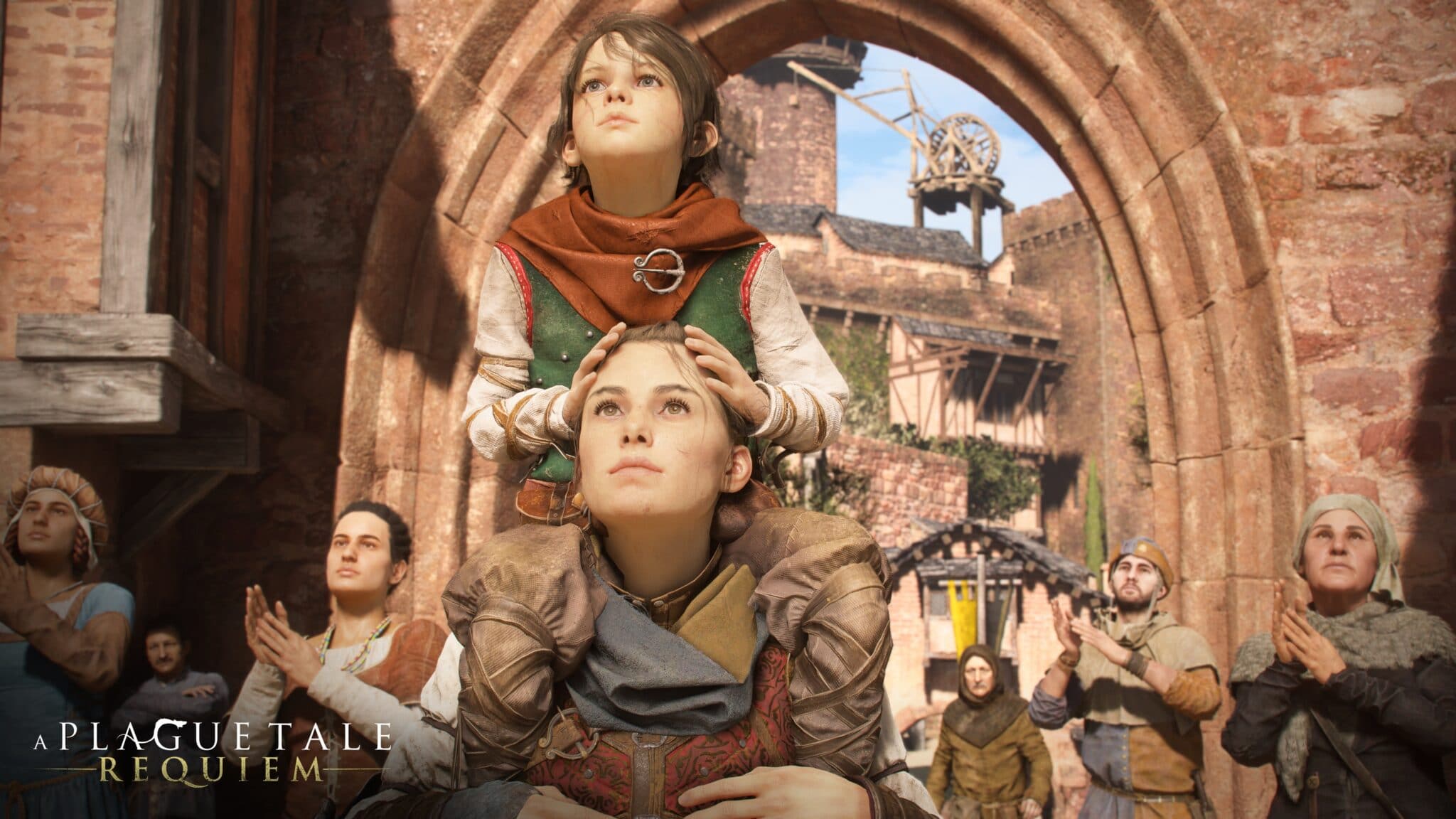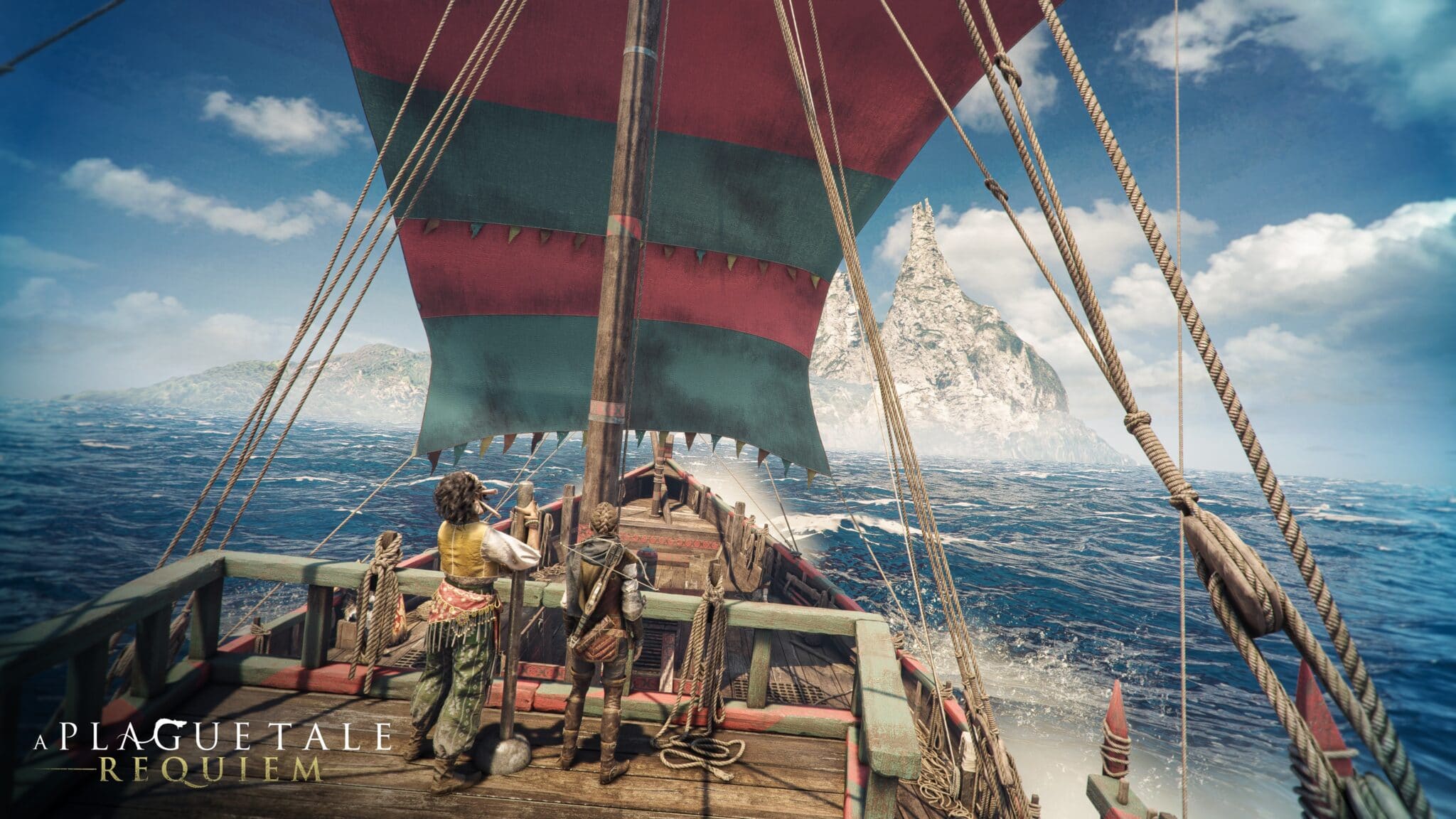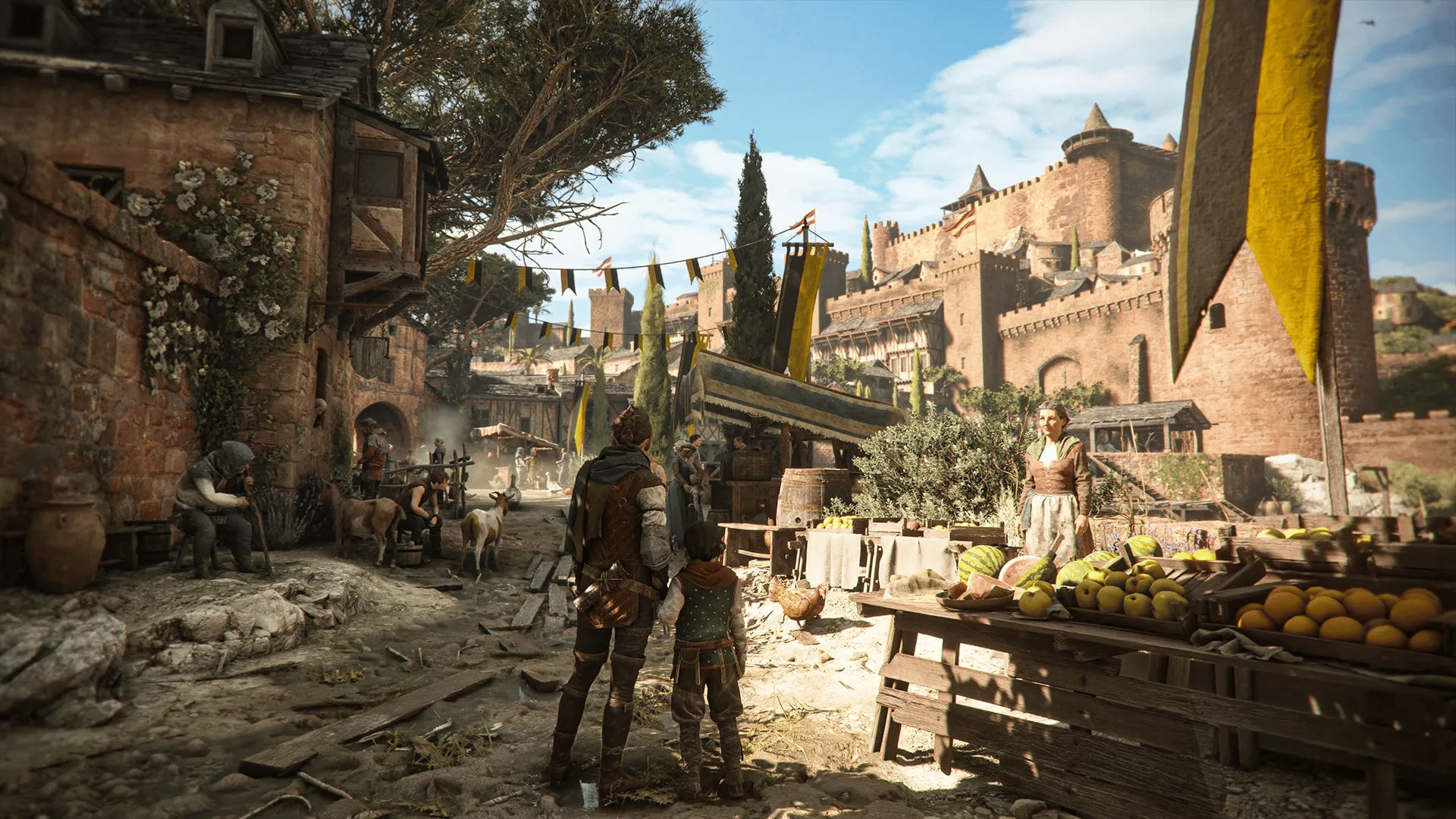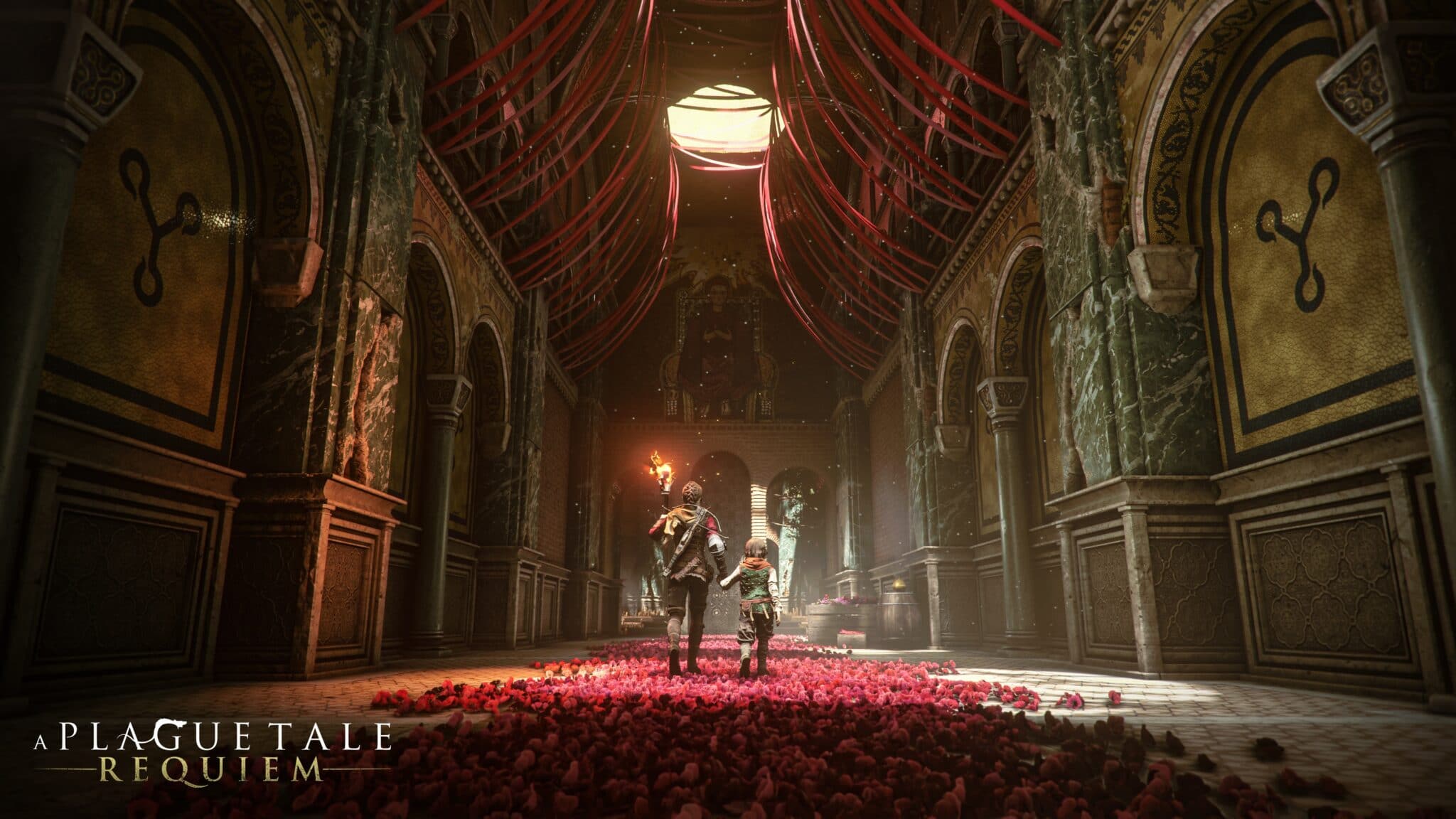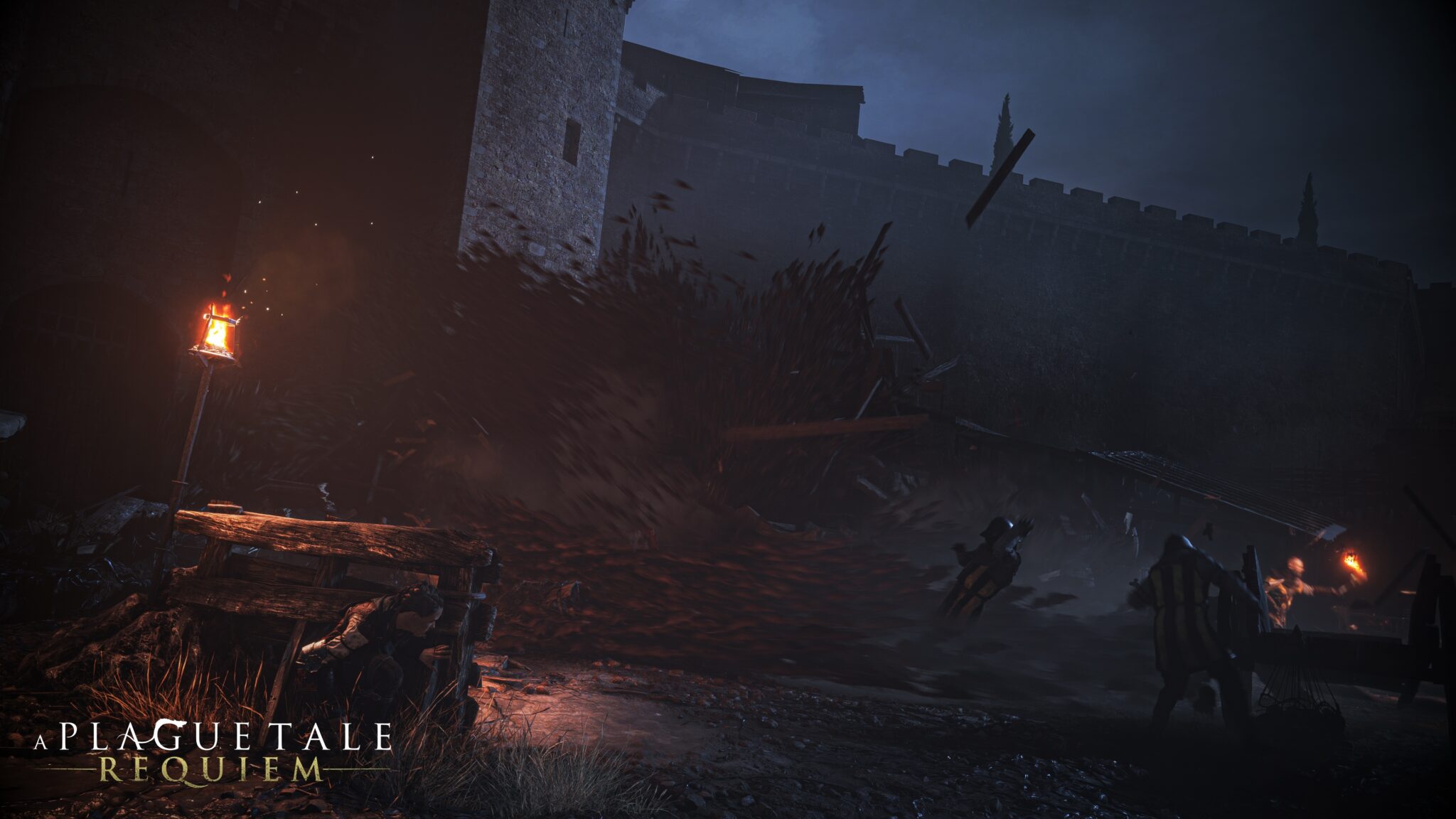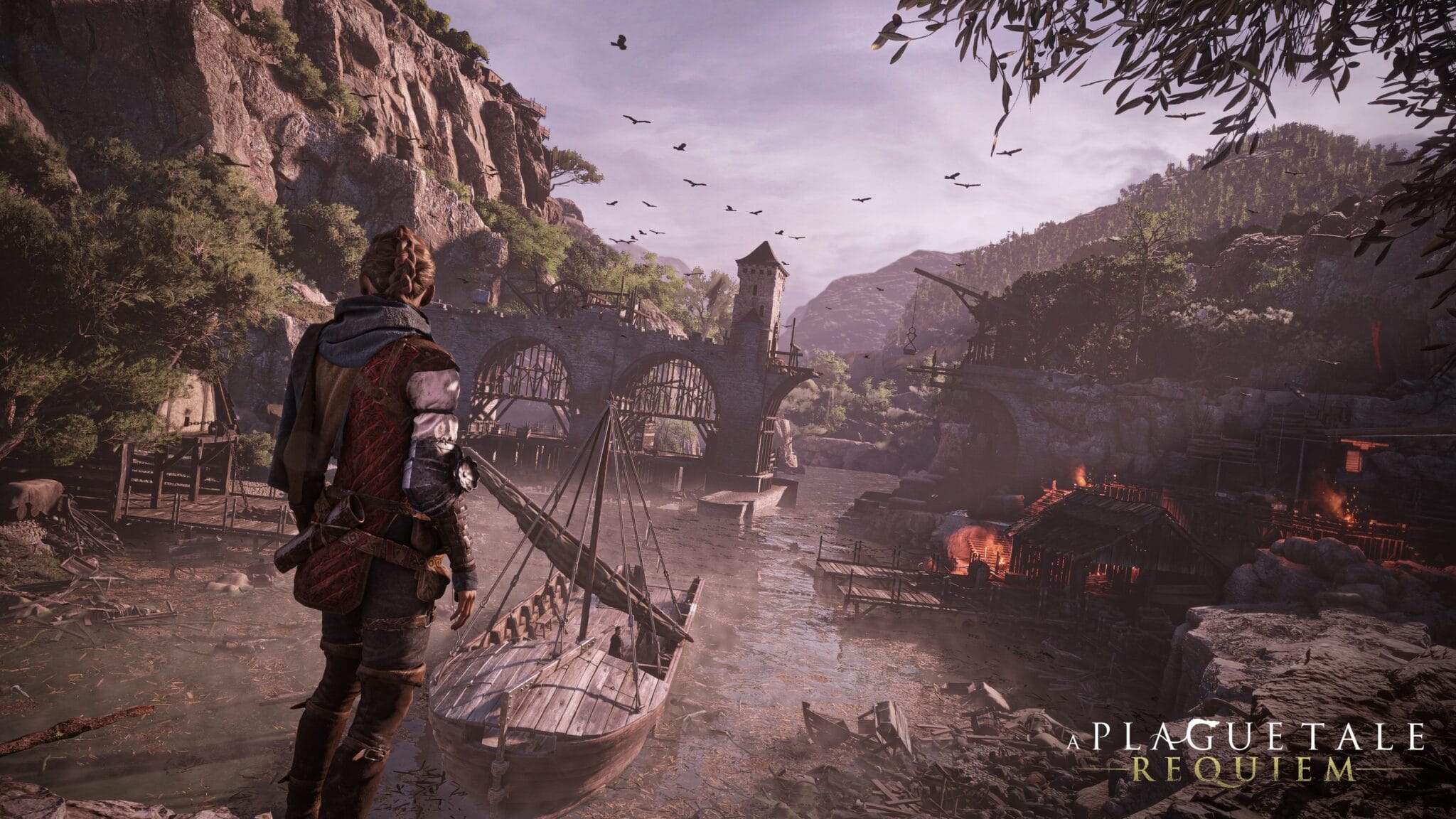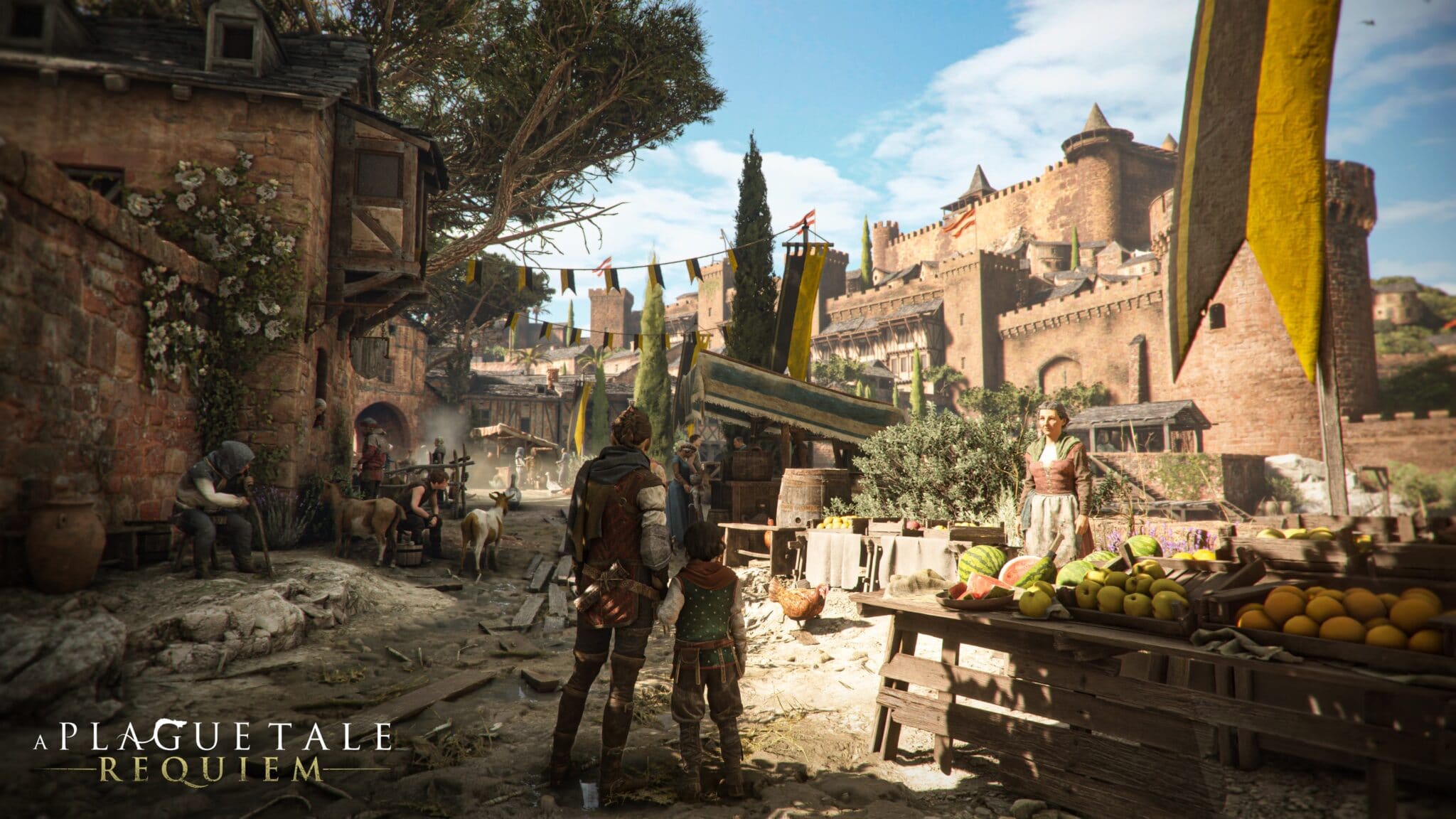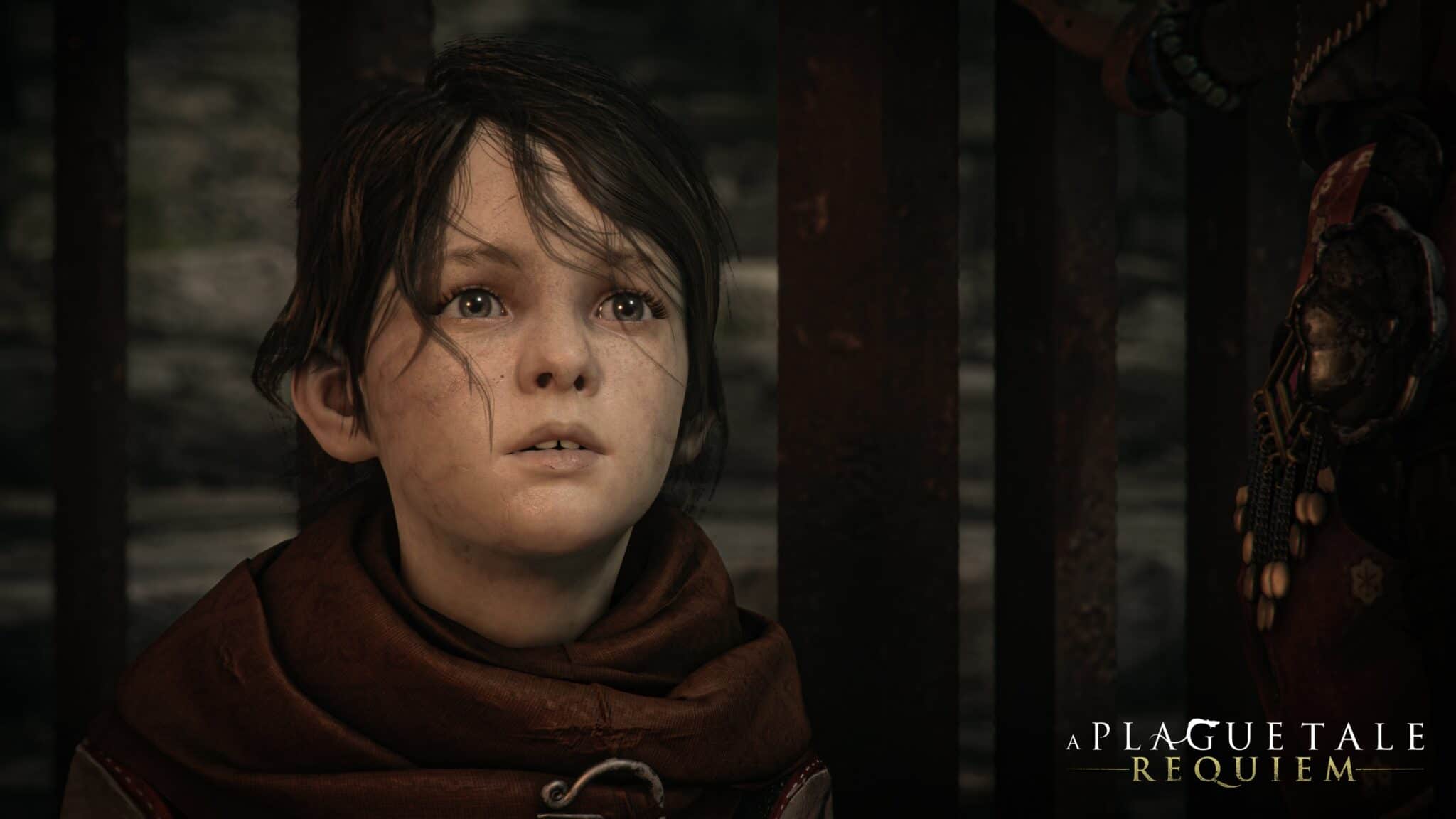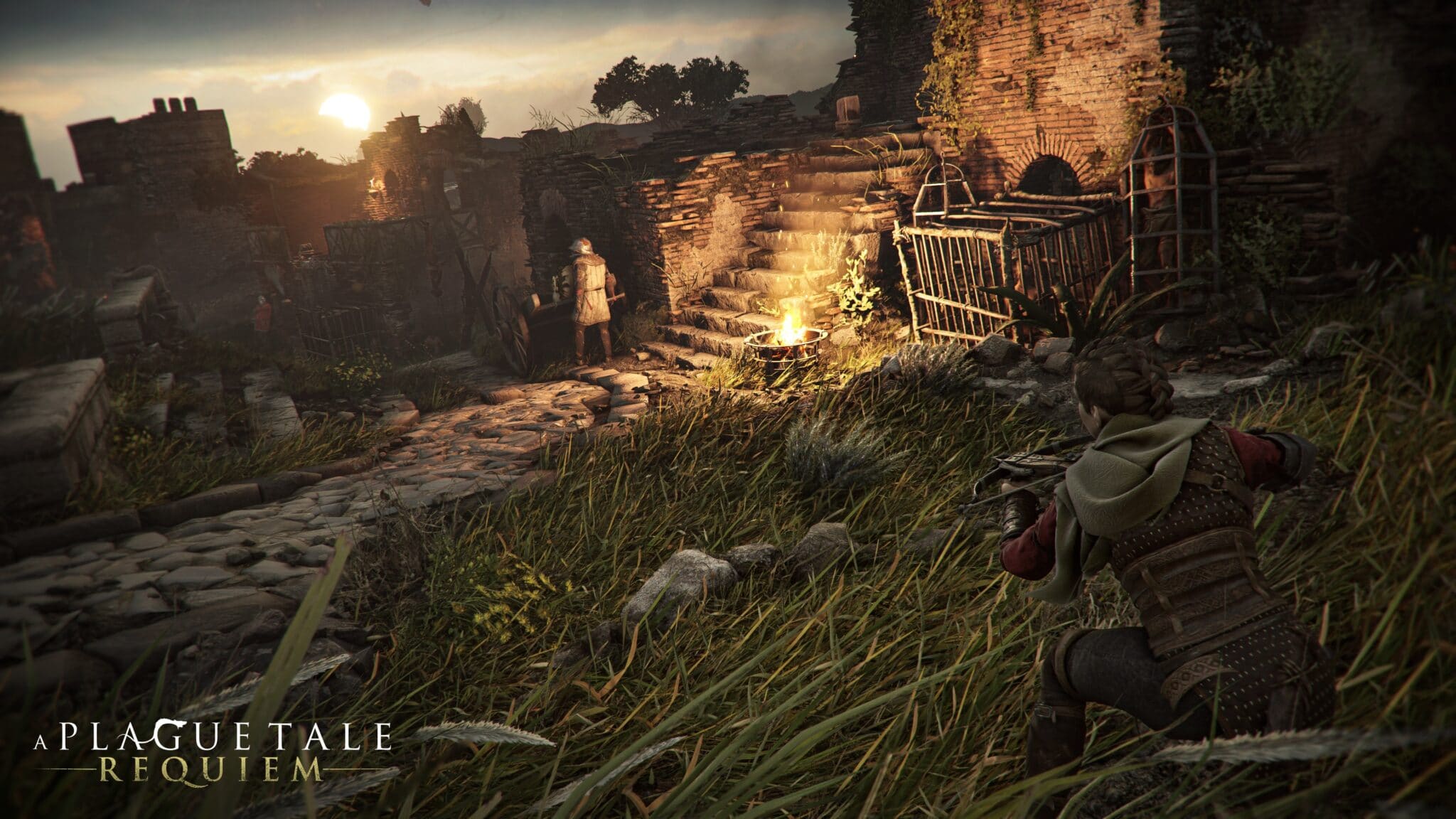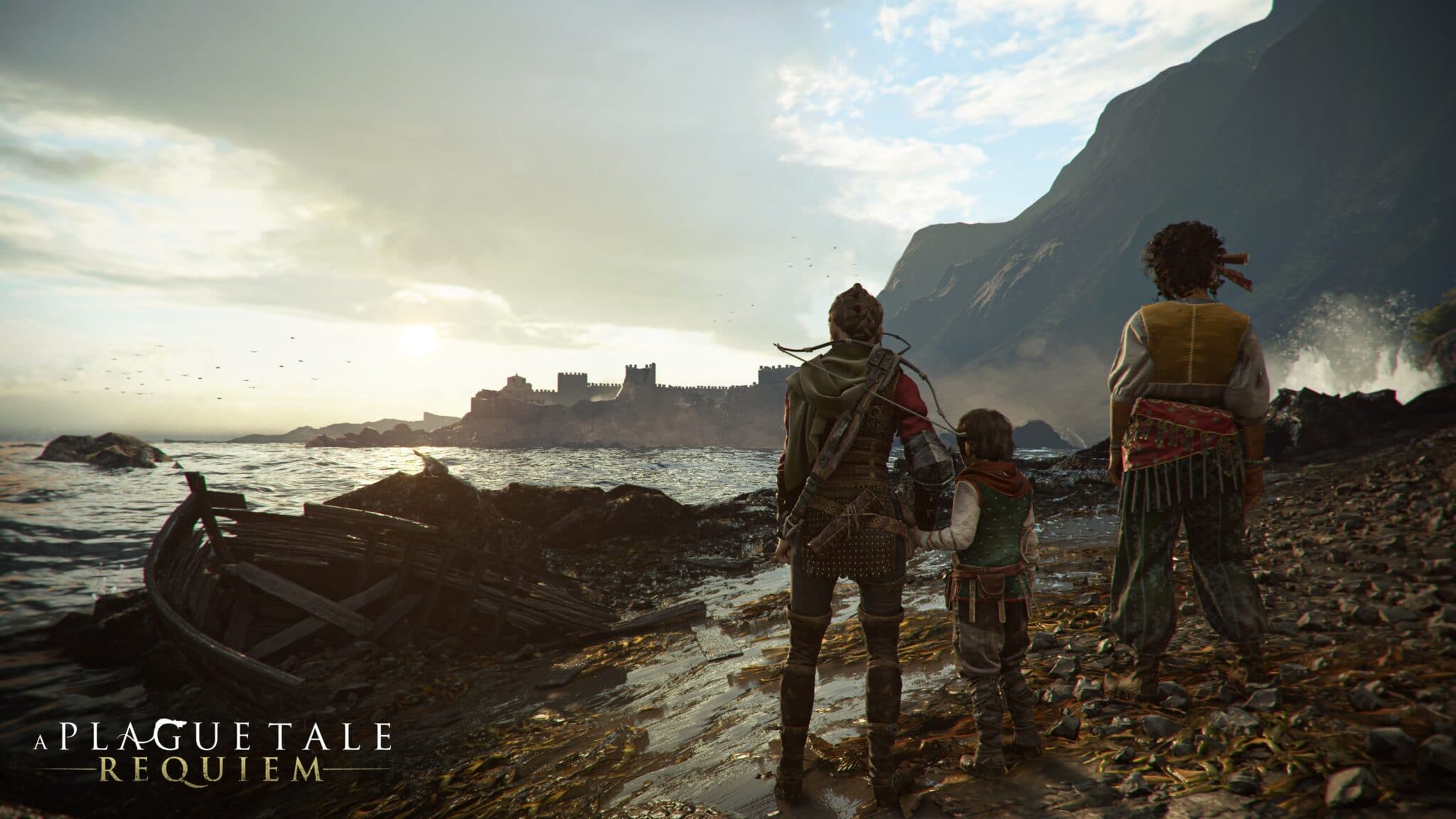Requiem is meant to straighten out the weaknesses of its predecessor and promises more gameplay freedom and a stronger focus on gameplay – without the story suffering as a result.
A Plague Tale: Innocence crept into the hearts of many players with the sibling pair Amicia and Hugo. The emotional, tragic, but in places also very beautiful story around the unique relationship of the two and Hugo’s mysterious powers could even console over playful weaknesses.
A Plague Tale: Requiem is now supposed to iron out these weaknesses and allow more playful freedom – without the story suffering. Game director Kevin Choteau tells us in an interview how one of the best story games is to be continued in a worthy manner.
Here you can watch the atmospheric trailer for A Plague Tale: Requiem:
More playful freedom for the successor
(~) : A Plague Tale: Innocence was very well received by many players. How do you plan to top that with your new game?
Kevin Choteau: Requiem is much more open in terms of gameplay. That’s something we wanted to implement. We want to focus on the fact that you can play it how you want, not how it’s supposed to be played. That was the case with Innocence, for example.
As for the story… this time it’s all about “growing”. The same could be said about the gameplay, by the way. Amicia grows up with the events of the past, with everything that happened. And the same goes for Hugo: he grows up with his big sister, who kills people, and with his power, which can also be deadly. And he is confronted with what that power does to him and to his relationship with Amicia.
(~) : What is the biggest change since Innocence?
Kevin Choteau: The game is longer and more expansive, but not simply because we wanted to do it that way. We want to tell a much bigger and complicated story about certain views, growing up. And that’s why we also needed a bigger, a longer game.
The biggest change is the open gameplay with bigger areas where players can approach situations the way they want. The story follows these decisions. For example, players can start killing all the soldiers and people. And then Amicia and the others will talk about it – differently than they would if you let everyone live and do things differently. The game recognises your play style and gives you even more options to play the way you want. That’s the biggest innovation.
(~) : We were able to take a first look at the game in the demo version and saw some open areas there. Would you say that Requiem has bigger areas in general – or is it going to be very linear like the first game again?
Kevin Choteau: The really tight and linear corridors occur primarily in the tutorial sequences. But the gameplay is set up for huge, open areas where you can play however you want.
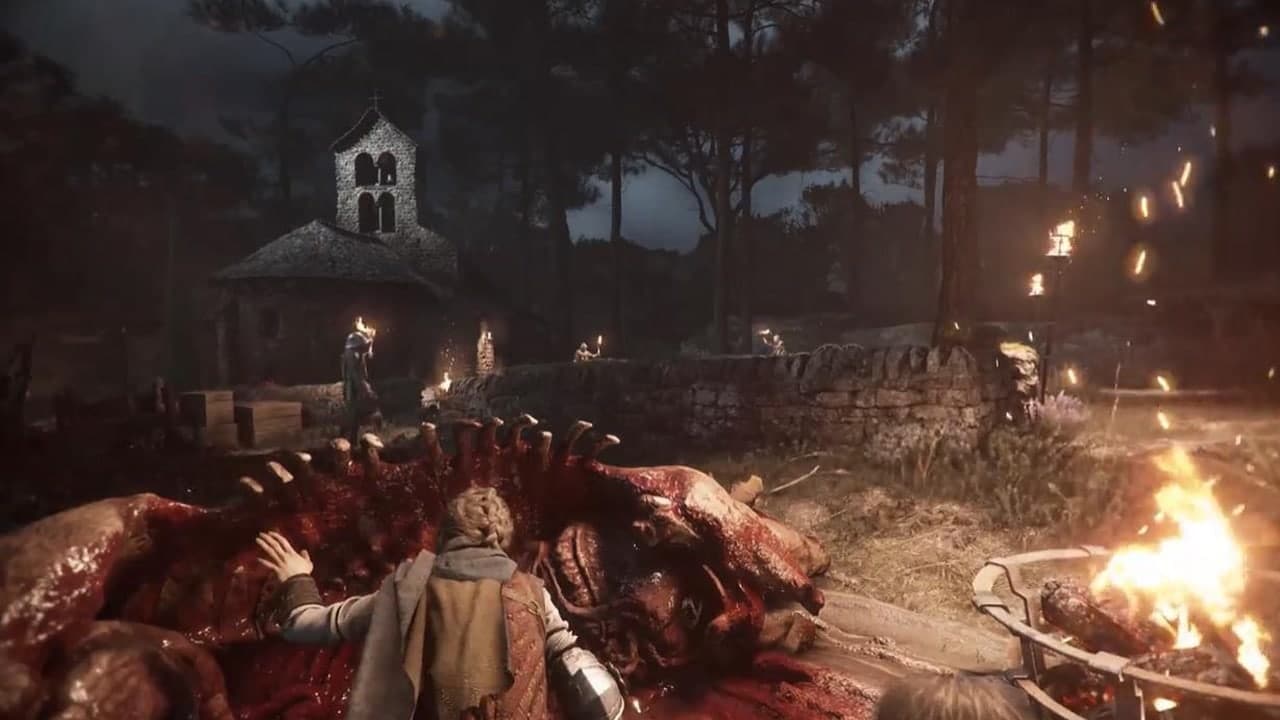
(~) : Does this mean that we can now choose to continue to use stealth or just run into the action and start fighting wildly?
Kevin Choteau: Yes, you can choose how you want to approach a situation. You can go for stealth, or you can go for confrontation, or you can go for a mixture of both. The skill system also goes hand in hand with this. Depending on how you play, the game will reward you in one of three categories: stealth, combat, and opportunist.
For example, if you love combat, you’ll level up in this category and get special skills to continue playing that approach. With “Stealth” and “Opportunist”, on the other hand, it’s more about being smart about the situation and taking advantage of the environment. That was one of our basic ideas: If we make everything more open, then the gameplay and the way you approach situations should also be more open.
(~) : Will there also be choices that affect the story or even the ending?
Kevin Choteau: No, Requiem also still has a linear storyline.
This is how it continues with Amicia and Hugo
(~) : Why did you decide to tell Amicia and Hugo’s story? Wasn’t their story already told?
Kevin Choteau: We just had a good idea that we wanted to try out. We came up with a new situation, something new and terrible that could happen to Amicia and Hugo. Something that we could complete their story with. There’s still a lot to tell and that’s what we wanted to try to do.
(~) : Can you tell me more about Hugo’s powers in Requiem? Do we pick up exactly where we left off in Innocence? Or do his powers disappear again first?
Kevin Choteau: At the end of Innocence we saw that Hugo can control the rats. But he doesn’t know his limits yet, he doesn’t quite understand what’s happening and how far he can go. We delve into that in Requiem. At the beginning of the play, several months have already passed in which no rats have appeared and in which Hugo has not used his powers because everything seems to have calmed down. And then something happens and changes everything.
He rediscovers his powers and this time we have new possibilities. In the trailer at the Xbox Showcase we showed that this time we can control the rats directly. We can move them through the world and take out soldiers with them. So we can use Hugo’s powers a lot more in Requiem. It’s very practical, but also very dangerous. These powers have their limits, of course, it’s a game with fire – primarily for Amicia, but also for Hugo. If he goes too far, it can end very badly. So the players will have the opportunity to experience all that.
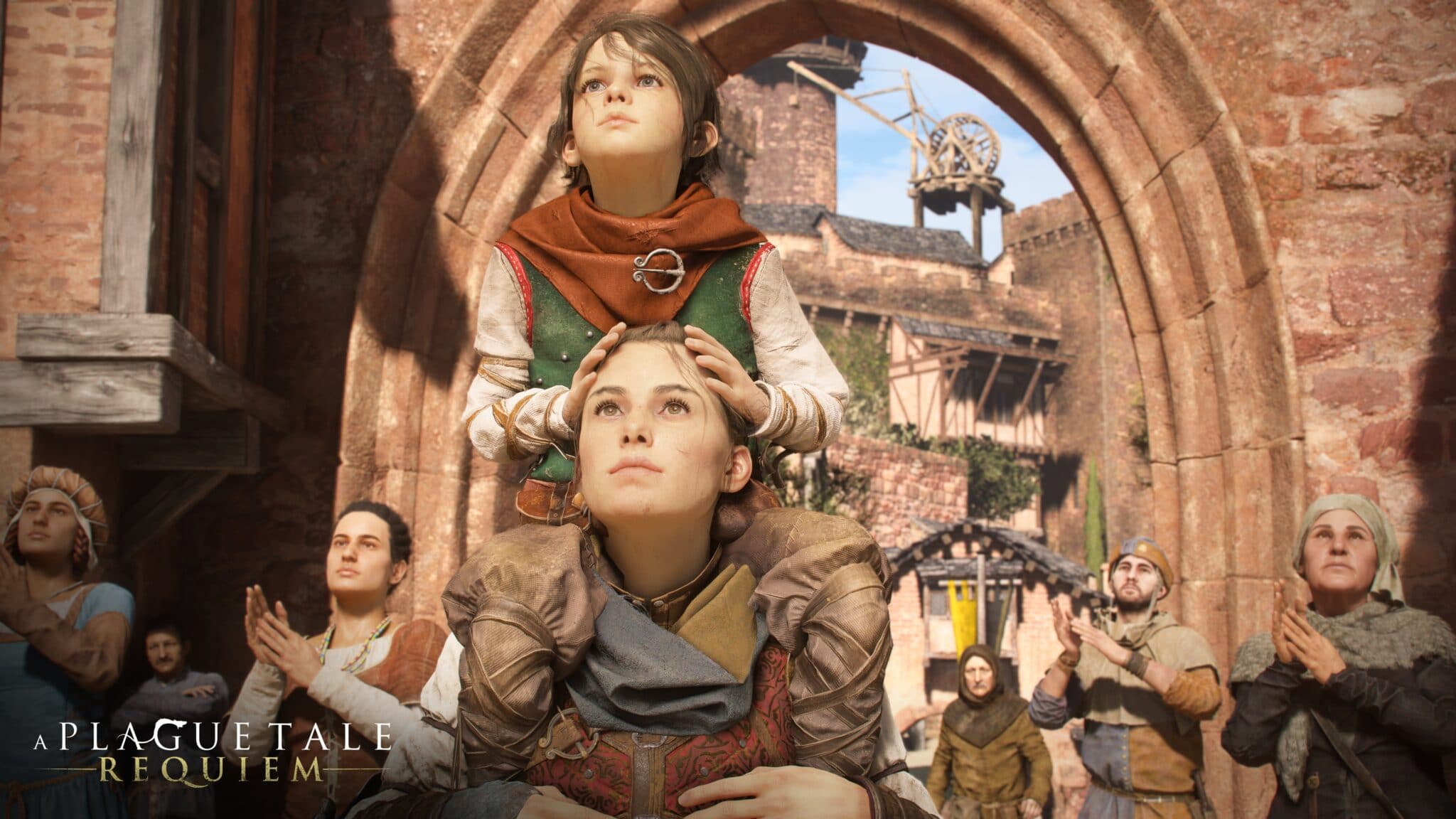
(~) : How has their relationship changed since the first part? In Innocence, we saw them grow together because they didn’t really have much to do with each other before that. What is it about this time?
Kevin Choteau: They have a very special relationship. It will be hard for them to find their place in this duo – and it will be hard for their mother, Beatrice, to find her place between them. We are trying to restore the family concept after everything that happened in the first game. So it’s about trust and the differences and boundaries between them. Hugo wants to be too much like his sister – and sometimes that’s not a good idea.
(~) : In the trailer we have already seen a few characters, but also enemies, weapons or gameplay mechanics that we already know from the first part. How do you want to make sure that Requiem doesn’t feel too repetitive?
Kevin Choteau: I don’t think it will feel repetitive because we’ve increased the number of options you can try. Different tools, ammunition, players can use the environment – none of that existed in Innocence. And there’s a much broader and more open gameplay now, which changes the feel of the game and the pacing.
So I think we’re doing a pretty good job already. Players will also be going to places they haven’t been before from Innocence and it will feel new and fresh. I don’t think it will disappoint the players. They will come across familiar things, but we also have a lot of new things in store for them.
(~) : We have already seen Lucas, the student of the alchemist Laurentius, in the trailer for Requiem Does he also have an influence on the gameplay this time?
Kevin Choteau: Yes. I don’t want to give too much away, but he has a big impact on the game, the story, everything. He’s really important for us.
(~) : Are there challenges to development when it’s not the playable protagonist who has the abilities in her? And why did you decide against making Hugo a playable character?
Kevin Choteau: For us it’s super cool because the limitations come from Hugo not being a playable character. So we don’t have to create artificial barriers because the powers depend on someone else. That’s very useful. But it’s very frustrating at the same time, because it also means that we have to constantly remind the players that the power is not in their hands.
So we have to find the right balance. In our case it’s relatively easy because as a player you’re actually playing both Amicia and Hugo – you see them as a duo, they mean something to us and also the story revolves around them and their relationship. They can only survive if they rely on each other.
(A real spectacle awaits you)
(~) : One criticism we had of Innocence was the boss fights, which often felt very static and didn’t really want to fit into the game. Did you change anything about that?
Kevin Choteau: We totally agree with you that it wasn’t the best part of Innocence. It was our first game in this genre and we had to try our hand at it. This time we’re going at it a little differently and a little smarter. So yes, we have changed that. I don’t want to give too much away about the bosses, but they will be more exotic and very different from the ones in the first part. There’s a real spectacle waiting for you!
(~) : Which innovations do you personally like the most?
Kevin Choteau: I love the crossbow. It is very efficient and fun to use. It is a good addition to Amicia’s toolset. I also love the rat control skills. It’s very satisfying to be able to devour the enemies yourself as you play through the chapters. Very satisfying – in a weird way, because you’re eating people, but yeah … [laughs.]
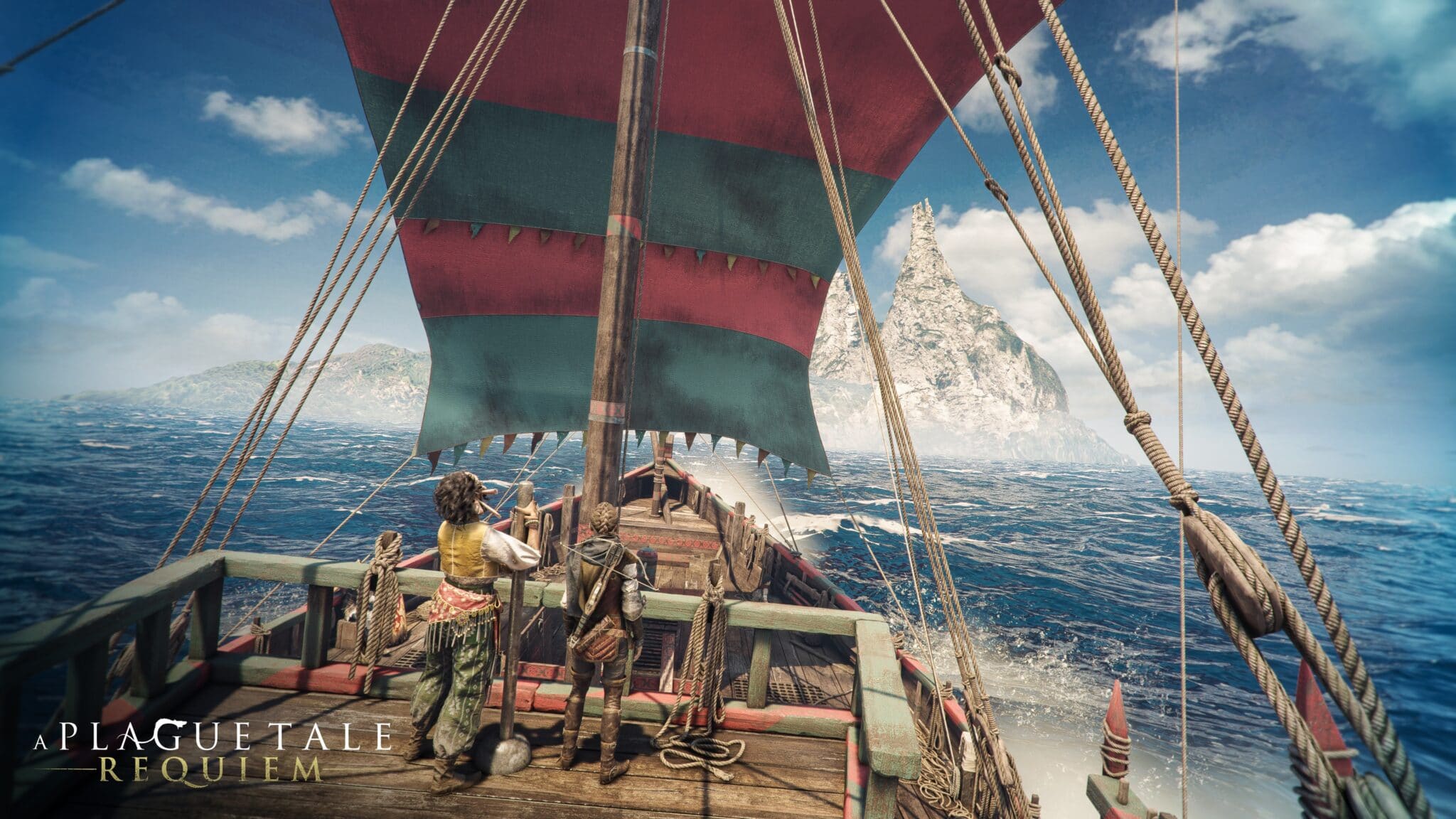
(~) : How long will it take to play through the game?
Kevin Choteau: It’s a bit longer than the first part. The playing time is about 16 hours.
(~) : Is Requiem the last part of the series or is there more to come after this?
Kevin Choteau: I don’t know. If we have something that we still want to tell and show, a new idea, then we’ll do that, I guess. But at the moment we are concentrating on finishing Requiem. That’s all for now.
(~) : Is there anything else you would like to tell our readers?
Kevin Choteau: When we were working on Innocence, we were about 40 developers. Now we’re 70, we’re approaching this game in a similar way to how we approached Innocence back then. It’s our little baby, we love it. And we love it so much that we want to create the best possible experience for players.
We listen to our community, we read the feedback, we love that they have so much to say about the game and we’ve tried to implement a lot of it as well. So I hope players will love Requiem just as much and have fun with all the little surprises we’ve packed into the game.

